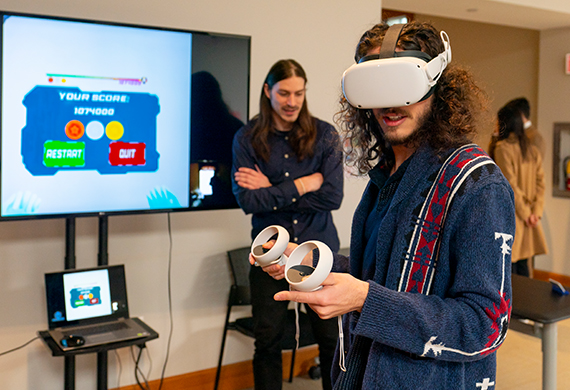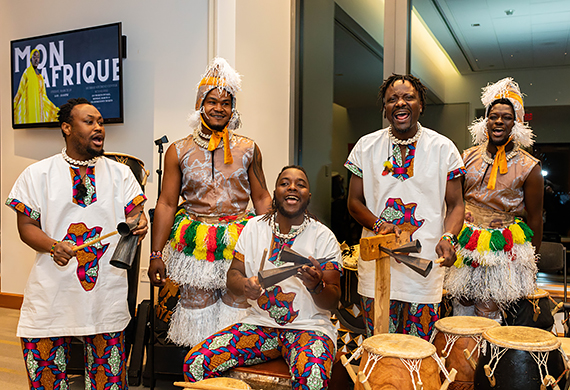New Online Workshop Explores Marist Spirituality
Taught by Scholar-in-Residence Brother Seán Sammon ’70, the course is open to the entire College community.
April 8, 2020—Last spring, Marist Scholar-in-Residence Seán Sammon '70, worked with a student on an independent study on the topic of Marist spirituality. The experience left Sammon, a Marist Brother and the former Superior General of the Marist Brothers, wanting to explore the topic further. With self-isolation the new normal, he decided to put together a spring, online workshop.
“Since folks are home these days and may have extra time, I thought that it might be helpful to some to reflect on a new understanding of spirituality in general and Marist spirituality in particular,” he explained.
Beginning April 15 and spanning four consecutive Wednesday evenings, Sammon will host a virtual conversation. Each of the four sessions will examine a specific topic; a video and some suggested articles will be sent to participants one week prior to prep them for a full discussion.
The first session will present information on the life cycle and a general discussion of the concept of “spirituality” across the lifespan. “Spirituality in this section is associated with meaning and purpose in life,” Sammon explained. “For example, at midlife so many feel the need to nurture the next generation, to come to know and love themselves more honestly. Life’s later years are a time for giving thanks, letting go, finding meaning in diminishment.”
The second week will focus on Marcellin Champagnat, his life and mission. “Most people here at Marist have limited knowledge of of the details of Marcellin’s life,” Sammon noted. “He began life as a sheep merchant, lacked education, and was born into a time in history not unlike our own. In many ways, he was an unconventional priest working as a laborer and dealing first hand with the intrigues of Church politics. His view of education was refreshing: he believed that love was the foundation of any educational project and often said, ‘To teach young people you must love them first and love them all equally.’”
The third week focuses on Mary of Nazareth, the mother of Jesus. Patriarchy has been a factor in shaping our understanding of her. “Mary was a simple, middle-eastern peasant woman who, from all accounts, was illiterate. I plan to use some articles by theologian Elizabeth Johnson to get folks to reflect on a new image of Mary. She lies at the heart of Marist spirituality.”
The final session will explore the Marist mission today as it reaches 79 countries and includes more than 3,000 brothers, close to 70,000 lay colleagues and almost a quarter of a million young people each year.
The workshop is free and open to students, faculty, staff, alumni and parents of current students. The sessions will run on four consecutive Wednesdays, beginning on April 15. Capacity is limited; register here.



